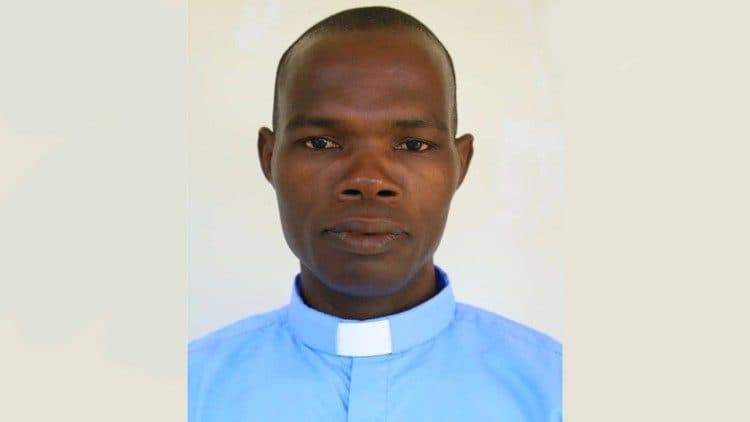YAOUNDÉ, Cameroon – Catholic leaders in South Sudan are issuing increasingly desperate appeals, calling themselves “frustrated and shocked,” over the recent disappearance of a priest and his driver.
Father Luke Yugue and his driver, Michael Gbeko, were reported missing April 27.
In May 5 comments to Crux, the Pastoral and Social Communication Coordinator for the Sudan Catholic Bishops’ Conference, Father John Gbemboyo, said Yugue had left his parish in Nagero, South Sudan, for another parish in Western Equatoria State where he also regularly goes.
“It was a journey that could have taken about 2.5 hours to 3 hours on the motorbike on which they were travelling,” Gbemboyo told Crux.
“The parish priest knew they were on the way. He waited until the evening and they never came. Up to now, nobody knows their whereabouts,” he said.
Gbemboyo said it is believed the priest and his driver might have been kidnapped, and the news of their disappearance has had a debilitating effect on local Christians, laity and clergy alike.
“The situation it has caused is that of shock and frustration from the clergy and from the Christians. We are just shocked at this information, and communities are not happy,” he said.
Assuming it’s a kidnapping, it would be the first time a priest has been kidnapped in South Sudan.
“We have never heard that kind of a threat or attack on a priest or disappearance of a priest. So, we are desperate, we are only relying on the good will of God to help us see Father again. Lots of efforts have been made by the authorities of the area, and there is no trace where they can be found,” Gbemboyo said.
The shock and frustration playing out in the area is a function of the humanity of the South Sudanese people, according to the priest, who said that South Sudanese generally value the lives of others, particularly of priests who work to enhance the prospects for peace, and Yugue “has been at the forefront of this.”
Gbemboyo said it is suspected that ex-rebels who have not been absorbed into the country’s armed forces might have been responsible for the taking of the priest. He said the church has been working collaboratively with the administrative authorities “on how to find Father.”
Bishop Edward Hiiboro Kussala of South Sudan’s Catholic Diocese of Tombura Yamb declared four days of prayer to ask for God’s mercy in finding the priest.
“I hereby appeal to all of you wherever you are, specifically in our parishes and institutions, to hold an organized prayer for a good four days beginning on May 2, 2024, for Fr. Yugue and Mr. Gbeko,” Kussala said in a Thursday, May 2, message.
He called on Christians “to pray the prayer directed for Diocesan Year of Faith, to make an hour of adoration every day alone or with a group, and finally pray Holy Rosary daily and ask the maternal protection of Mary, Mother of help for our two brothers and many more.”
Gbemboyo told Crux that the four days of prayer were intended to ensure that Christians understand the gravity of the situation, and insisted that they must go beyond the four days and continue praying until Yugue and his driver are found.
In an April 29 statement addressed to the country’s president, Salva Kiir, Kussala called for state intervention in rescuing the priest and his driver and all those who might have been held with them.
“As a church, we appeal to Your Excellency to help us bring Fr. Luka and those with him home alive,” he wrote.
In a May 2 statement, Kussala said that the lives of all South Sudanese were in God’s hands as he thought about the ongoing conflict in the country.
He noted that the country that gained independence in 2011 “has suffered a lot and it should end,” and urged all South Sudanese to “work for durable peace.”
“For the last ten years, South Sudan has been in conflict, and only tears and brokenness of innocent people have remained,” the cleric said.
Insisting on the need to “invest in peace,” Kussala said nobody has ever won a war in South Sudan.
“It is our duty to work towards peace. Human dignity is given by God and no amount of violence can negate people’s aspiration for human dignity; peace is still possible; peace is the way,” he told Crux.
South Sudan gained her independence from Sudan in 2011, but political tensions between the country’s President, Salva Kiir, and his Vice President, Riek Machar, eventually led to the ouster of the Vice President.
Soldiers from the Dinka ethnic group, aligned with Kiir, clashed with those from the Nuer ethnic group, who supported Machar.
The violence quickly spread, with the armed groups targeting civilians along ethnic lines, committing rape, destroying property, and recruiting child soldiers. Despite several rounds of negotiations and international pressure, the war persisted. In August 2015, Kiir and Machar signed a peace agreement, but violence continued. Cease-fires were negotiated and violated, displacing tens of thousands of people.
Gbemboyo told Crux that ever since, there has been some “relative calm” in South Sudan.
“There is no large-scale fighting, but we still have inter-communal and inter-tribal conflicts which are believed to be sponsored by the politicians,” he told Crux.














